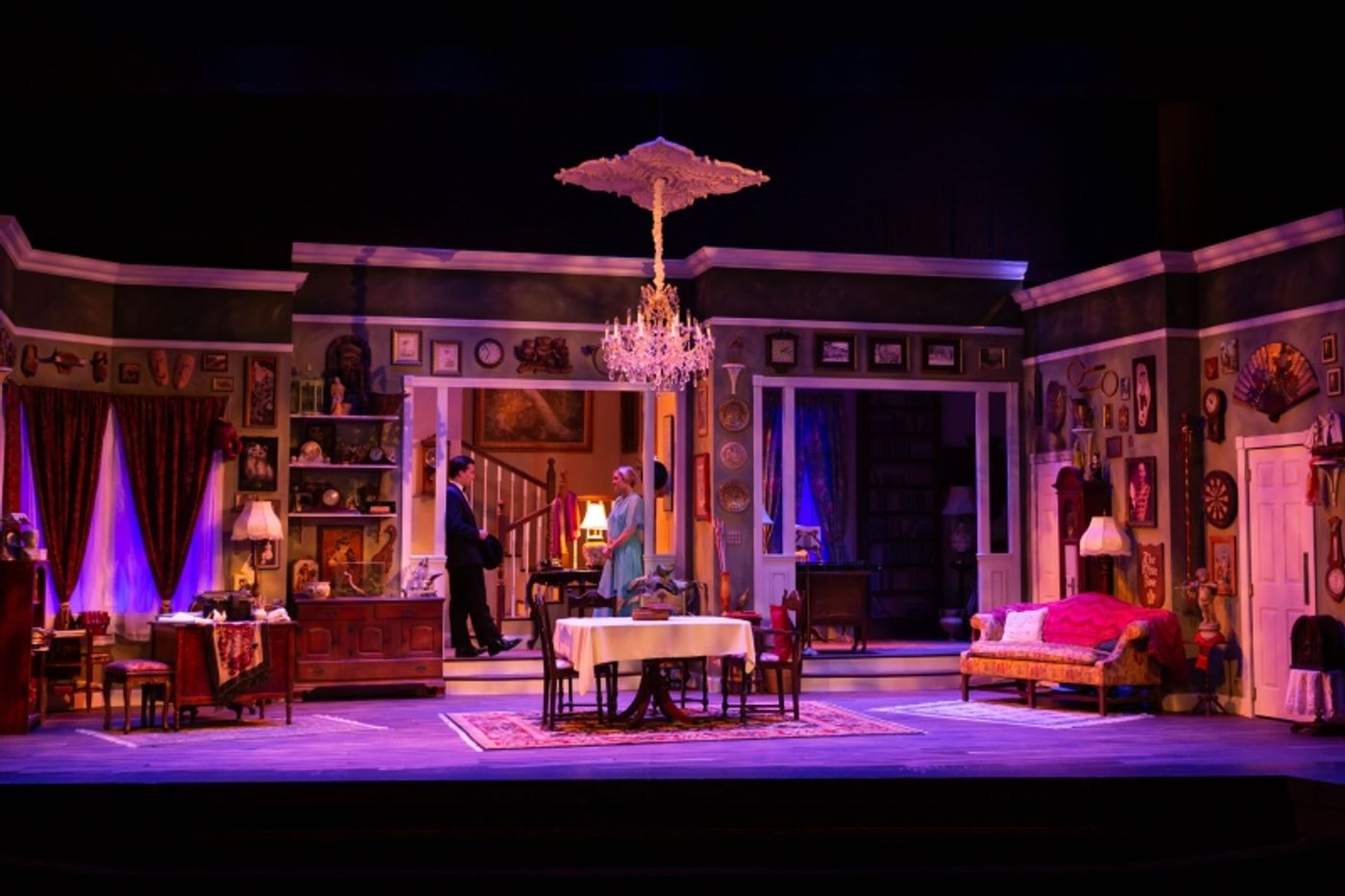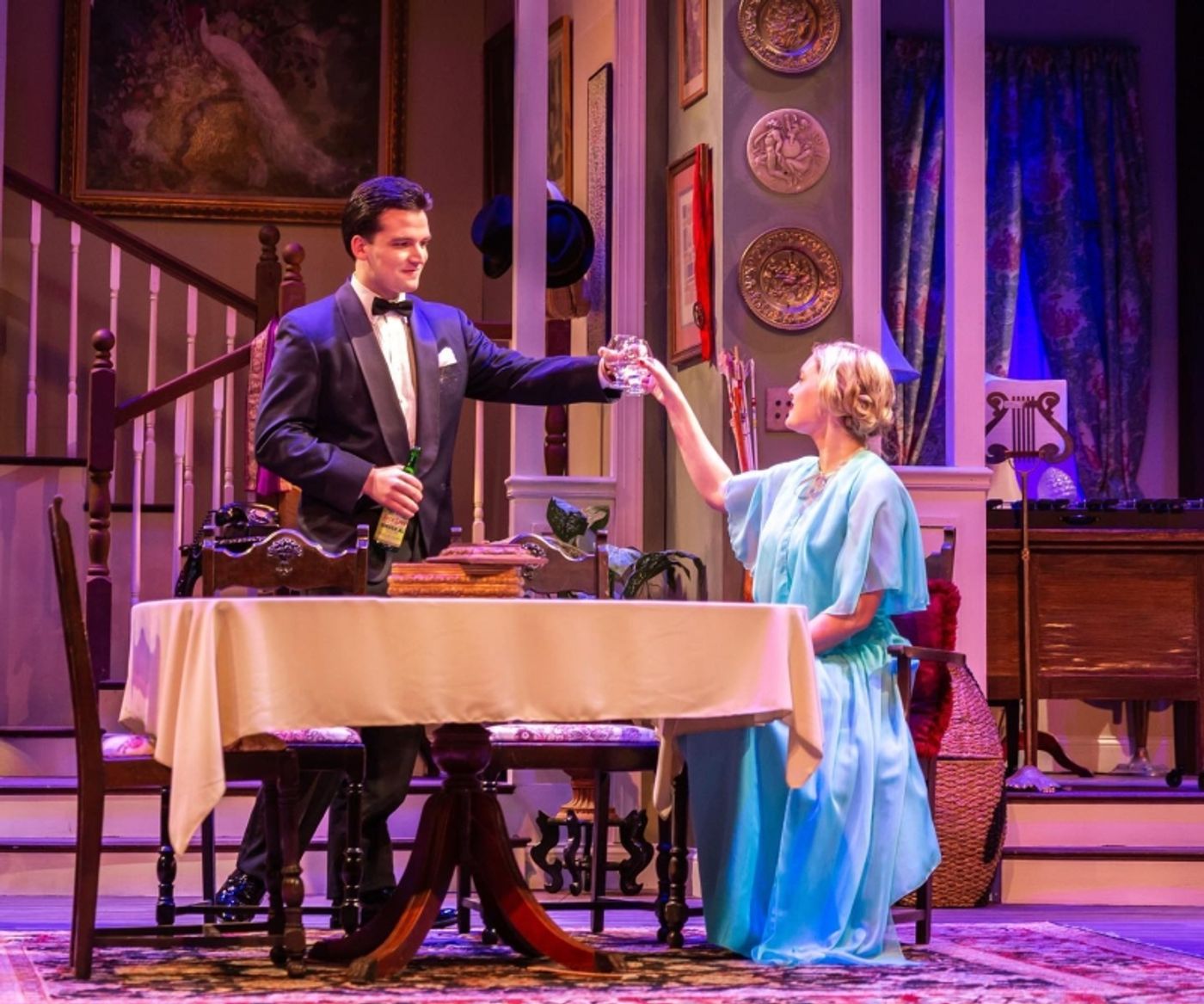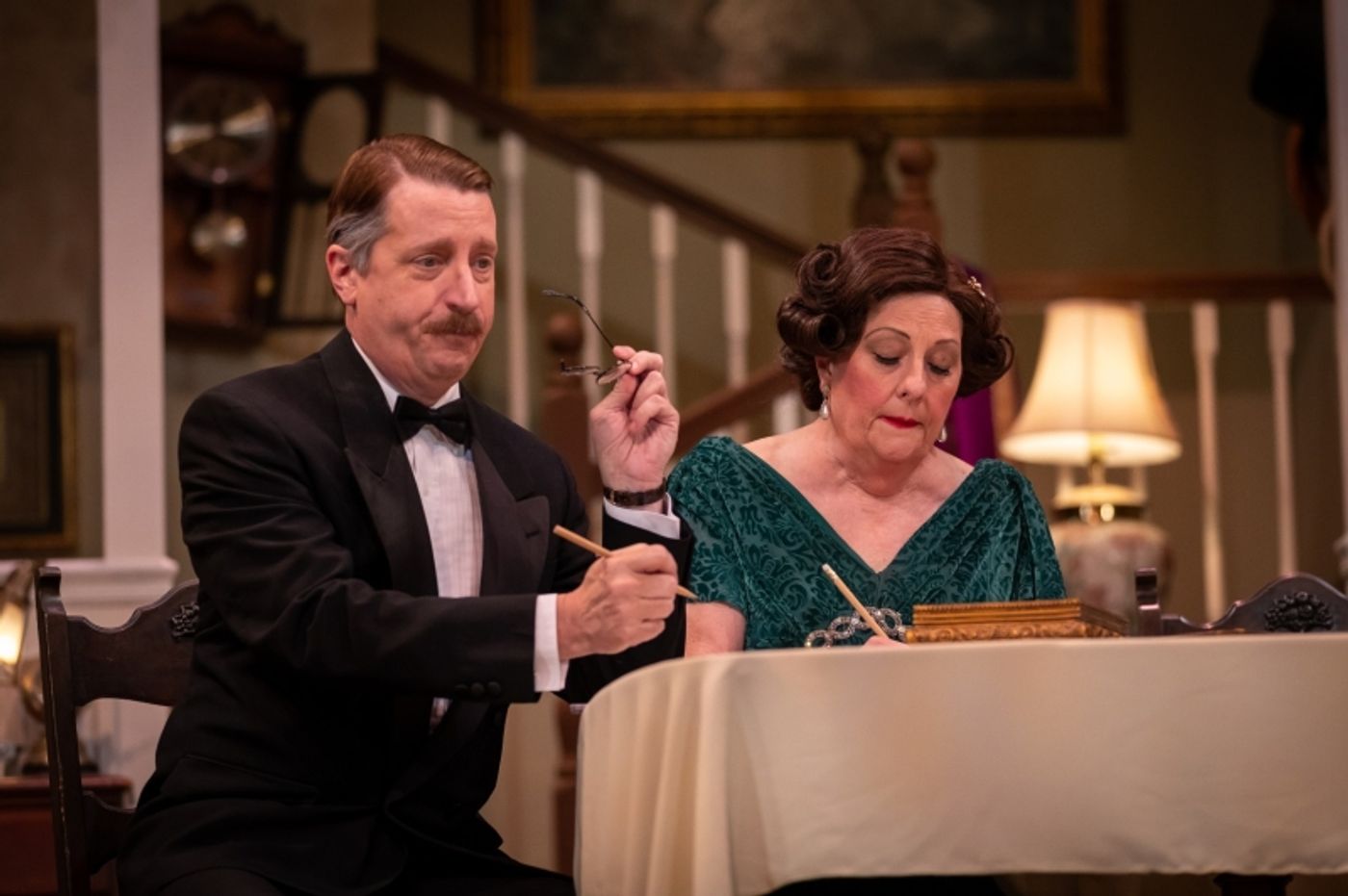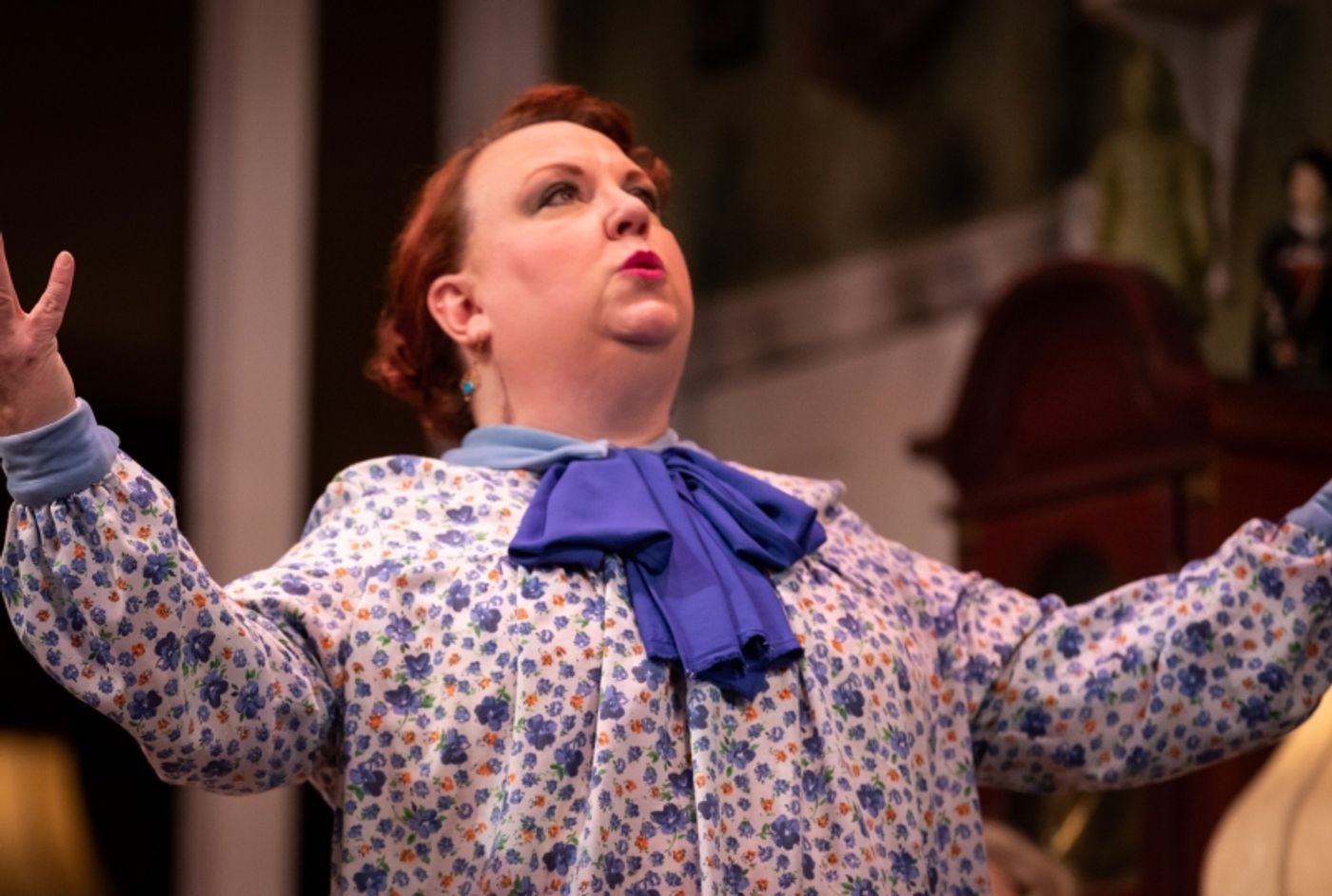Review: YOU CAN'T TAKE IT WITH YOU at Theatre Memphis
So, Enjoy It While You Can!

After 100 years of producing musicals, comedies and dramas, Theatre Memphis has (like any other theatre lucky enough to be around this long) produced its fair share of "clunkers" and "classics." Some of them were "classics" which turned out to be "clunkers," but many of them, as of late, have turned out to be "classics" that have been made to feel fresh and relatable (which is no small feat). Most community theatres across America pull out well-known titles as they rely more on the title of the show to fill the seats rather than on the actual people pulling the show together. It is a "safe" plan, but not always an entertaining one. Fortunately for the Memphis community, Theatre Memphis has found the talent to match the titles more often than not and YOU CAN'T TAKE IT WITH YOU is no exception. Premiering on Broadway in 1936, winning the Pulitzer in 1937 and then the Academy Award for Best Picture in 1938, this George S. Kaufman and Moss Hart play displays a family (some may call eccentric) in which each member comfortably follows their bliss regardless of the path. When they are met by their daughter's potential suitor's family, they must decide whether to be their authentic selves or hide away what makes them genuinely happy. Fortunately, this clan intuitively understands that life is short, no one is getting out of it alive, so you might as well enjoy yourself. More perfunctory than profound, it's a sweet reminder that all families are peculiar, yet loveable and acceptance always wins the day.
In less capable hands, community theatres and such tend to overplay this show as a farce for easy laughs rather than trusting the words on the page and allowing the character development to elicit the guffaws. It's done out of inexperience and not trusting the material. It almost always disappoints. Fortunately, director Ann Marie Hall is experienced, understands comedy and chooses wisely in her casting (an often-underappreciated skill) and never allows the actors to go two-dimensional in their portrayals, but instead keeps everyone grounded and refreshingly believable. This "restraint" respects the Pulitzer Prize winning material and allows the audience to "relate" to the arrays of quirkiness experienced in all our families-an astonishing testament to a piece written over eighty years ago.

At the risk of being annoyingly redundant, Jack Netzel-Yates' s scenic and property design is once again exquisite and the best in town. He replicates a handsome 1936 New York estate with rich crown molding, a vast assortment of family heir looms that is punctuated by a seemingly detached, yet dazzling chandelier that magically teardrops over the family. It is a remarkable sight. Technically, the rest of the show falls nicely in line in that it neither detracts nor falls short of what is expected. The only minor complaint might be that the firework sounds that are supposedly being set off in the basement weren't realistic. They sounded like what they actually were--a sound effect being piped through speakers and, with everything else being so technically grounded in realism, it was off-putting.
Again, Hall has done an excellent job with casting and each actor does the most with what is on paper. While there is truly not a weak link in the bunch, a few performances really are top notch and deserve mentioning. In a last second replacement for the irreplaceable Kim Justis who broke her foot onstage this past Saturday night, Susan Brindley pulls double duty stepping in for Justis as Gay Wellington (the always inebriated actor looking for her next performance) and Grand Duchess Olga Katrina (seen in later in the show), the dethroned monarch working as a local waitress. While Brindley wasn't planning on stepping into the physically demanding comedic role of Gay Wellington twenty-fours earlier, she pulled it off beautifully. Even with such short notice, she was able to bravely take her time with the physical comedy that the role requires and find the humor. A seamless save for the show.

As the Russian choreographer (Boris Kolenkhov) brought in to train one of the Vanderhof daughters (Essie) in ballet, Christopher Tracy is the most appropriately outlandish character. His mixture of passion, disgust, and delight (depending on the situation) rang true and was quite funny.

Austin Michael Russell as the gentleman caller, Tony Kirby, trying to win the love of the other Vanderhof daughter (Alice), is charming, handsome, and fully accepting of his would-be love's family's eccentricities. He nicely plays the "straight man" in a house full of supposed "screwballs."

Brian Helm and Carol Russell play the uptight, status-hungry parents (Mr. and Mrs. Kirby) who show up unannounced to meet their son's new love. Their attempts at remaining above the chaos fall apart gloriously during an impromptu game of word play. They play well off each other and garner lots of laughs.

Mary Buchignani, as usual, turns in a convincing performance as the mother (Penny Sycamore) to the Vanderhof girls as she waffles between two of her passions-playwrighting and painting. She unabashedly throws herself into her hobbies, but then struggles through uncomfortable snickers to mask her family's oddities from the unexpected visitors. Her giggles will make you giggle.
.jpg?format=auto&width=1400)
The glue that holds this entertaining family (and show) together is patriarch Martin Vanderhof portrayed by the sensational Chris Sterling. Overseeing a self-assured tribe while also modeling an affable demeanor, Sterling's Vanderhof is able to earnestly speak softly without carrying a big stick. Rather than chasing money and status, this Vanderhof knows "you can't take it with you" and that relationships and experiences always trump the material world. Sterling somehow manages to fill the space as large as Theatre Memphis with a passive, easygoing persona that is absolutely charming and reassuring. He's a fatherly figure we all would be lucky to have.
YOU CAN'T TAKE IT WITH YOU is a character-driven play that requires a certain style based on the time it was written and the patience to allow the humor to evolve from the people in the situations rather than just the situations themselves. In an era where families rarely spend time together sans electronics, Ms. Hall and her troupe remind us in 2022 just how important quality AND quantity time with family still is. Such a reminder is truly needed and welcomed. Life is indeed short and best spent doing the things we love with the people we love. Likewise, this is another show at Theatre Memphis that is time well spent with people you are sure to love.
Photos by Carla McDonald
Reader Reviews
Videos

